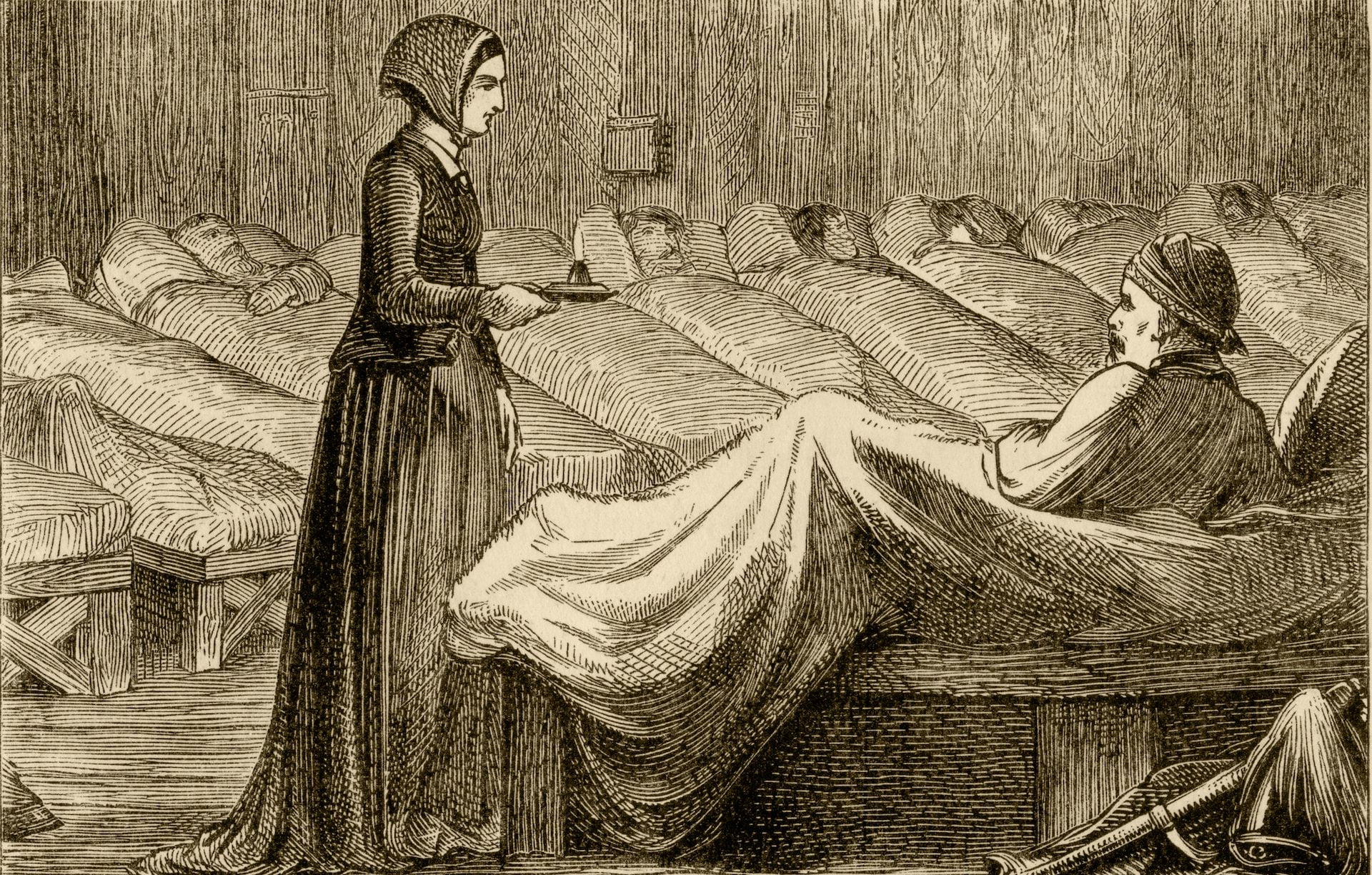Florence Nightingale was born into privilege but chose a life of service. Known as the founder of modern nursing, she was more than just a nurse—she was a polymath, activist, statistician, writer, and reformer. Rejecting the rigid expectations of Victorian womanhood, she pursued a higher calling: to care for the sick and improve healthcare systems worldwide.
Nightingale transformed nursing from a disrespected domestic task into a respected medical profession. Her unwavering dedication to patient welfare, even at personal cost, reshaped the future of healthcare. She declined marriage, including a nine-year courtship with poet Richard Monckton Milnes, believing it would interfere with her mission.
Early Life and Education
Born in 1820 in Florence, Italy, to wealthy English parents, Nightingale enjoyed a privileged upbringing. Her father, William Nightingale, was progressive in his views on women’s education and personally tutored Florence in mathematics, literature, and philosophy. She developed a strong aptitude for statistics, a skill she would later use to advance public health.
Feeling divinely called to care for the vulnerable, Florence expressed a desire to become a nurse—much to her family’s dismay. At the time, nursing was associated with poverty and immorality, and hospitals were unhygienic and disorganized. Undeterred, she educated herself and traveled to Germany for formal training.
The Crimean War: A Turning Point
In 1854, the Crimean War exposed the deplorable state of military hospitals. Following public outrage, the British government appointed Nightingale to lead a team of nurses to the British base hospital in Scutari (modern-day Türkiye). What she found shocked her: overcrowded wards, blocked drains, vermin, and a shortage of basic supplies like soap and bandages. Disease ran rampant, killing more soldiers than battle injuries.
Nightingale quickly set about reforming the hospital. She requested more nurses, cleaning supplies, and medical equipment. She also lobbied the government through The Times, leading to the construction of a prefabricated field hospital designed by engineer Isambard Kingdom Brunel. At night, she continued her rounds with a lamp in hand, earning the nickname The Lady with the Lamp. Within six months, the mortality rate dropped by nearly 40%.
Infection Control
Long before germ theory was fully accepted, Nightingale recognized the connection between cleanliness and health. She championed sanitation, handwashing, fresh air, clean linens, and proper nutrition. These practices drastically reduced infection rates and remain fundamental in modern healthcare.
Today, infection control is a core component of nursing and hospital protocols. Sanitary environments, disinfectant use, and hygiene education owe much to Nightingale’s pioneering insights.
Patient Assessment
Nightingale emphasized direct observation and personal interaction with patients. She carefully assessed each soldier’s condition to tailor care accordingly. This approach is now a standard nursing practice, forming the first step in developing personalized care plans.
Therapeutic Communication
Empathy was central to Nightingale’s method. She spent time listening to patients, offering comfort and emotional support. This type of therapeutic communication—demonstrating compassion while addressing a patient’s fears—improves trust, compliance, and health outcomes. It remains a core skill taught in nursing schools today.
Spiritual Care
Nightingale’s Christian faith deeply influenced her caregiving. She believed nurses should tend to patients’ spiritual as well as physical needs, particularly those facing chronic illness or end-of-life care. Today, spiritual assessment is integrated into holistic patient care, recognized as a key element in emotional and psychological healing.
Public Health Advocacy
Perhaps her greatest legacy was her impact on public health. Nightingale used statistical evidence to show that poor sanitation was killing soldiers. Her iconic data visualizations, such as the “coxcomb” diagram, made complex health data accessible to the public and policymakers.
This laid the groundwork for epidemiology—the study of disease patterns—and inspired health professionals worldwide to use data to shape policy. Her emphasis on preventative care, clean water, and sanitation still guides public health strategies today.
The Environmental Theory
Nightingale proposed a now-famous theory: that the environment significantly influences healing. She believed that light, fresh air, cleanliness, and a peaceful setting could restore health. She introduced flowers, pets, art, and music into care spaces to improve patient well-being. Her Environmental Theory remains a foundational concept in nursing education and practice.
The Nightingale Pledge
Since 1893, American nurses have taken the Nightingale Pledge—a vow to uphold nursing ethics, promote public health, and prioritize patient welfare. Though modernized, the pledge continues to reflect Nightingale’s values: compassion, integrity, and service to humanity.
Professionalizing Nursing
After the Crimean War, Nightingale returned to London and opened the Nightingale Training School for Nurses at St. Thomas’ Hospital. It was the first institution to offer structured, professional nursing education.
Graduates of the school spread Nightingale’s teachings across the globe, founding programs in the U.S., Australia, and India. Her textbook, Notes on Nursing, detailed standards for training and patient care—many of which are still relevant today.
The school, now part of King’s College London, continues to train midwives and nurses while conducting research and offering advanced degrees.
A Lasting Influence
Nightingale’s legacy endured through subsequent generations of nurses—and was profoundly felt during the COVID-19 pandemic. Nurses worldwide faced hazardous conditions, long hours, and emotional strain, yet remained on the front lines, echoing the sacrifices Nightingale made more than a century earlier.
Her model of selflessness, courage, and data-driven advocacy continues to shape healthcare policies and nursing practices. The World Health Organization declared 2020 the “Year of the Nurse and Midwife” in her honor—marking her 200th birthday.
A Visionary for All Time
Florence Nightingale was a trailblazer who broke through social, political, and medical barriers. In an era when women were expected to marry and stay silent, she commanded military leaders, influenced government policies, and published over 200 works on healthcare, statistics, and reform.
She lived to be 90, witnessing many of her reforms become standard practice. Nightingale’s work not only revolutionized nursing but also introduced the use of statistics in healthcare, giving birth to evidence-based medicine.
Why We Still Celebrate Florence Nightingale
Nightingale proved how one person can reshape entire systems with perseverance, intelligence, and empathy. She brought dignity to the profession of nursing, making it central to modern healthcare. Her legacy is visible in every hospital ward, public health report, and patient interaction.
Florence Nightingale reminds us that with purpose and passion, one voice—guided by data and compassion—can change the world.





